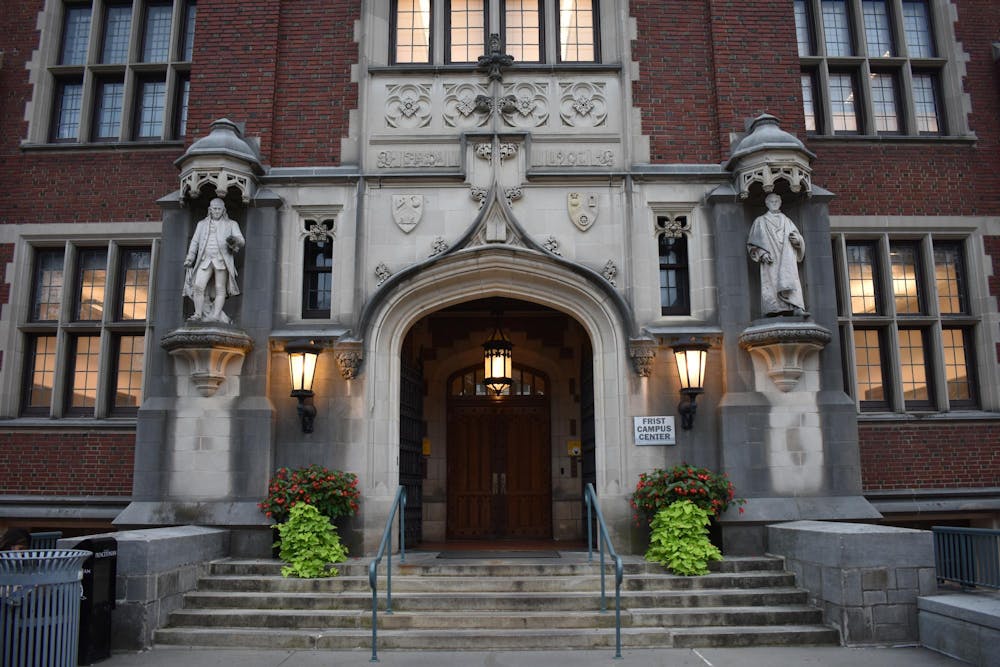The Sustainable Composting Research at Princeton (S.C.R.A.P.) Lab is pausing some composting operations for the 2025–26 academic year because of staffing shortages due to the University-wide hiring freeze.
In previous years, the facility has composted coffee grounds from campus cafes and food scraps and compostable dinnerware from the Frist Food Gallery and small department events. This year, the Lab will no longer accept waste from Frist or events. Instead, food waste will be sent to Trenton Renewables, which already recycles leftovers from all of Princeton’s other dining halls to produce biogas and compost.
The facility will still compost coffee grounds from campus cafes, including Coffee Club, and food scraps from a handful of Office of Sustainability events.
An announcement published in early September said that the reduction in operations is due to the hiring freeze, as the Lab has not been able to hire the necessary staff.
In a statement to The Daily Princetonian, University spokesperson Jennifer Morrill confirmed that these changes were because of University budgeting concerns.
“These changes come as part of the broader effort by University units to adjust spending to address financial conditions,” the statement read.
The S.C.R.A.P. Lab, affectionately known by its workers as “Scrappy,” was launched in 2018 through a grant secured by the Office of Sustainability to convert a portion of campus food waste into nutrient-rich soil for the campus grounds team using a small-scale composting technology. In total, the S.C.R.A.P. Lab has diverted and recycled over 355,000 pounds of food waste into compost. And this is not the first time S.C.R.A.P. Lab operations have been paused: It was on hiatus from 2020 to 2022, during the COVID-19 pandemic.
The facility was also a site of student and faculty engagement as part of the Campus as Lab (CAL) initiative. Some students incorporated the CAL into their independent work at Princeton: one freshman seminar in Fall 2024 was centered around the CAL. Until recently, the CAL Program employed dozens of students who gained hands-on composting experience as operational assistants and bin monitors.

Now, the hiring freeze has put a wrench in the S.C.R.A.P. Lab’s operations.
The S.C.R.A.P. Lab will still process coffee grounds because it “can be accomplished with less personnel than composting food scraps,” according to a University statement, and some students are still employed by the Office of Sustainability to transport coffee grounds to the S.C.R.A.P. Lab.
However, not all students were able to keep their jobs.
Elise Taylor ’27, a former operational assistant, told the ‘Prince’ that she had worked at the S.C.R.A.P. Lab sorting trash and dumping it into the composting machine. This hands-on experience of working for the lab was often academically and personally enriching for the student workers: Emery Jones-Flores ’26 shared that she got involved with the lab both because she wanted a job as a “lower income student” and because she wanted to continue her high school passion in environmental sciences.

Taylor added that the S.C.R.A.P. Lab’s efforts “had such a great impact on students learning from it,” ranging from freshman seminars to increased researcher support. “It became a much more productive and efficient way of composting because people were able to adapt to it as it’s getting researched,” she said.
With the indefinite pause, many of the students expressed their desire to continue their work with the S.C.R.A.P. Lab.
“I felt I was doing good. I really enjoyed my time there, and I would have liked to continue,” Isabella Sibaja ’26 told the ‘Prince.’
“I definitely was 100 percent interested in starting again this semester,” Jones-Flores said.
The University shared that for the operations to continue as planned, they would need to hire two part-time Facilities Operations Sanitation staff members who would be supported by one student employee per weekday shift.
Luke Grippo is an assistant News editor for the ‘Prince.’ He is from South Jersey and usually covers University and town politics, on a national, regional, and local scale.
Raphaela Gold is a head Features editor for the ‘Prince.’








